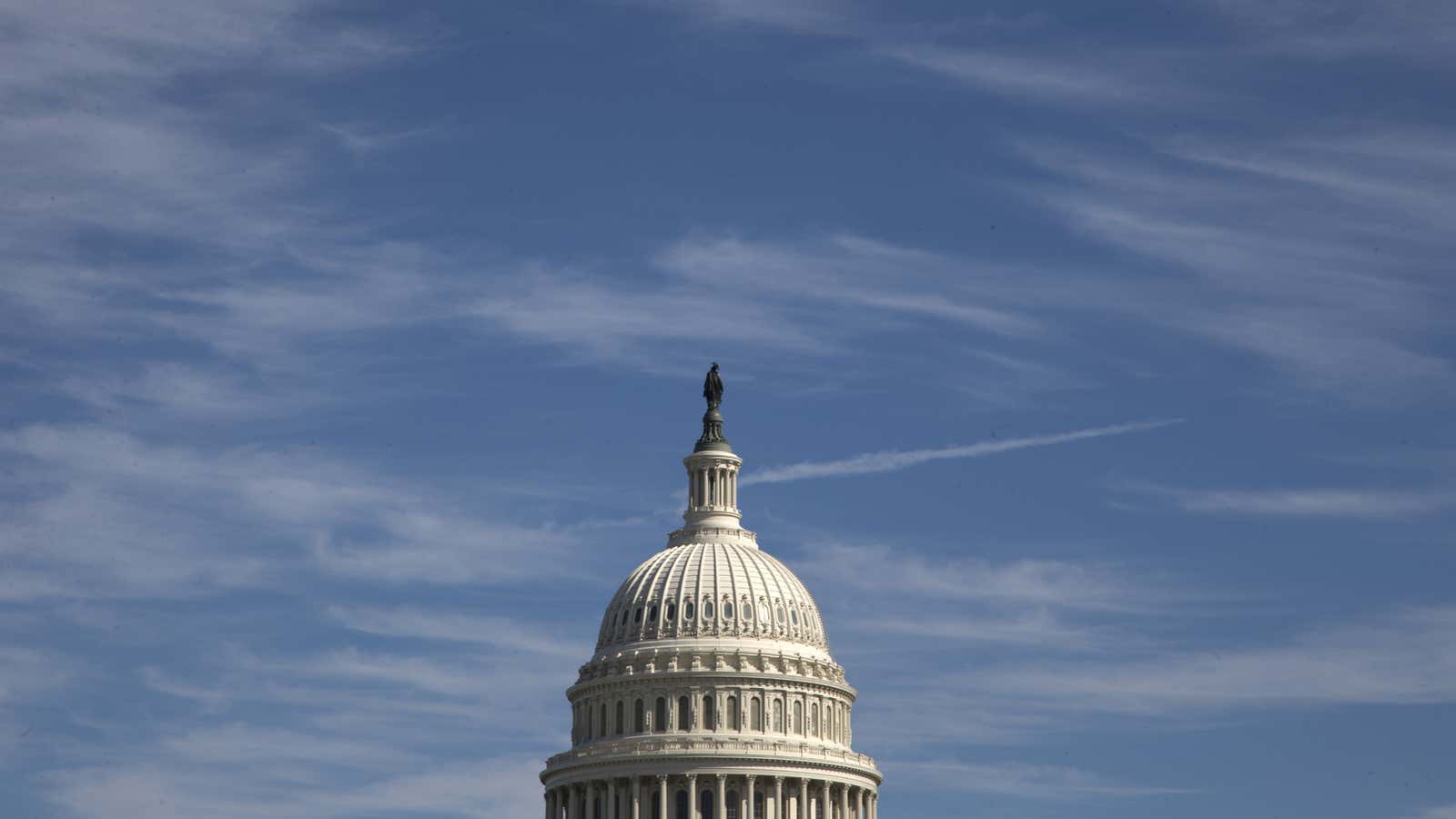It’s not that ordinary Americans never get what they want from the political system. It’s just that they only get what they want if the elites want the same thing.
A recent paper from Princeton’s Martin Gilens and Northwestern’s Benjamin Page is making a splash with the claim that they’ve assembled a data set (download) that shows the opinions of ordinary Americans have only a limited influence on actual policy outcomes. Here’s the key thesis (emphasis ours):
Multivariate analysis indicates that economic elites and organized groups representing business interests have substantial independent impacts on US government policy, while average citizens and mass-based interest groups have little or no independent influence.
Such a proposition would seem to punch a major hole in America’s democratic bona fides. Can these academics back it up?
Gilens and Page based their findings on a study of 1,779 policy issues—dating from 1981 to 2002—for which polling data existed that was broken down by income level for respondents. Researchers looked for issues with clear yes/no answers and specific issues pertaining to the federal government policy. (They also looked for questions that were phrased categorically, rather than conditionally.)
They then assessed responses by income level, using the answers for those in the 90th income percentile as a proxy for opinion among the affluent. These guys aren’t necessarily super rich, by the way. The 90th percentile corresponded to an income level of about $146,000 in average household income. But the writers argue that the difference between the opinions of the average citizen and the super rich are likely to look like a more extreme version of the difference between the average citizen and the merely affluent.
As a proxy for opinion among business elites, researchers looked at Fortune’s Power 25 lists. They also added groups from 10 key industries that reported the highest lobbying expenditures. Then they started searching through the public record—newspapers, press releases, Congressional Quarterly articles—to find out where these groups stood on the policy questions for which they had polling data. They coded the business groups’ position as “strongly favorable,” “somewhat favorable,” “somewhat unfavorable,” or “strongly unfavorable” to the change. And then they created a kind of index based on the responses. (Strong positions were given a heavier weighting than “somewhat” positions.)
Using all that data, researchers looked at the positions of these political blocs and the actual outcomes, i.e., what policy the federal government finally settled on.
Basically they found that if you were a betting person placing a wager on a political outcome, you’d pretty much always want to bet on the outcome that the affluent are in favor of. The opinions of the affluent and business groups were a far better predictor of actual policy outcomes than the opinions of Americans with median incomes.
A few people have run with these findings, suggesting that the study proves the US is an oligarchy.
“It’s not an unfair characterization,” Gilens said, when we bounced the O-word off him, though he added, “It’s a little bit alarmist.”
I guess it depends on how you define oligarchy. If you go with Aristotle’s original definition—”when men of property have the government in their hands”—then, well, yeah. (Although we don’t really stick to Aristotle’s definition of democracy—“when the indigent, and not the men of property, are the rulers”—anymore.) But today oligarchs have become virtually synonymous with the circle of billionaire crony commodities capitalists who make up the Russian power structure. It doesn’t feel like we’re talking about the same thing in this paper. Here’s why:
What we cannot do with these data is distinguish definitively among different versions of elite theories. We cannot be sure whether we are capturing the political influence of the wealthiest Americans (the top 1% of wealth-holders? the top 1/10th of 1%?), or, conceivably, the less affluent but more numerous citizens around the 90th income percentile whose preferences are directly gauged by our measure.
Basically, this paper tells us nothing about whether there’s a group of super-wealthy influencers with the ear of politicians who really pull the strings. It could be just as likely that the relatively well-educated Americans earning $150,000 and up are the ones that hold sway. That would square with the fact that America’s affluent suburbs have increasingly become key political battlegrounds in recent years.
At any rate, the takeaway is that ordinary Americans seem relatively powerless to influence the direction of policy. This idea isn’t exactly new. Political theorists such as C. Wright Mills were writing about similar things in the 1950s. Still, it’s pretty troubling for American democracy.
